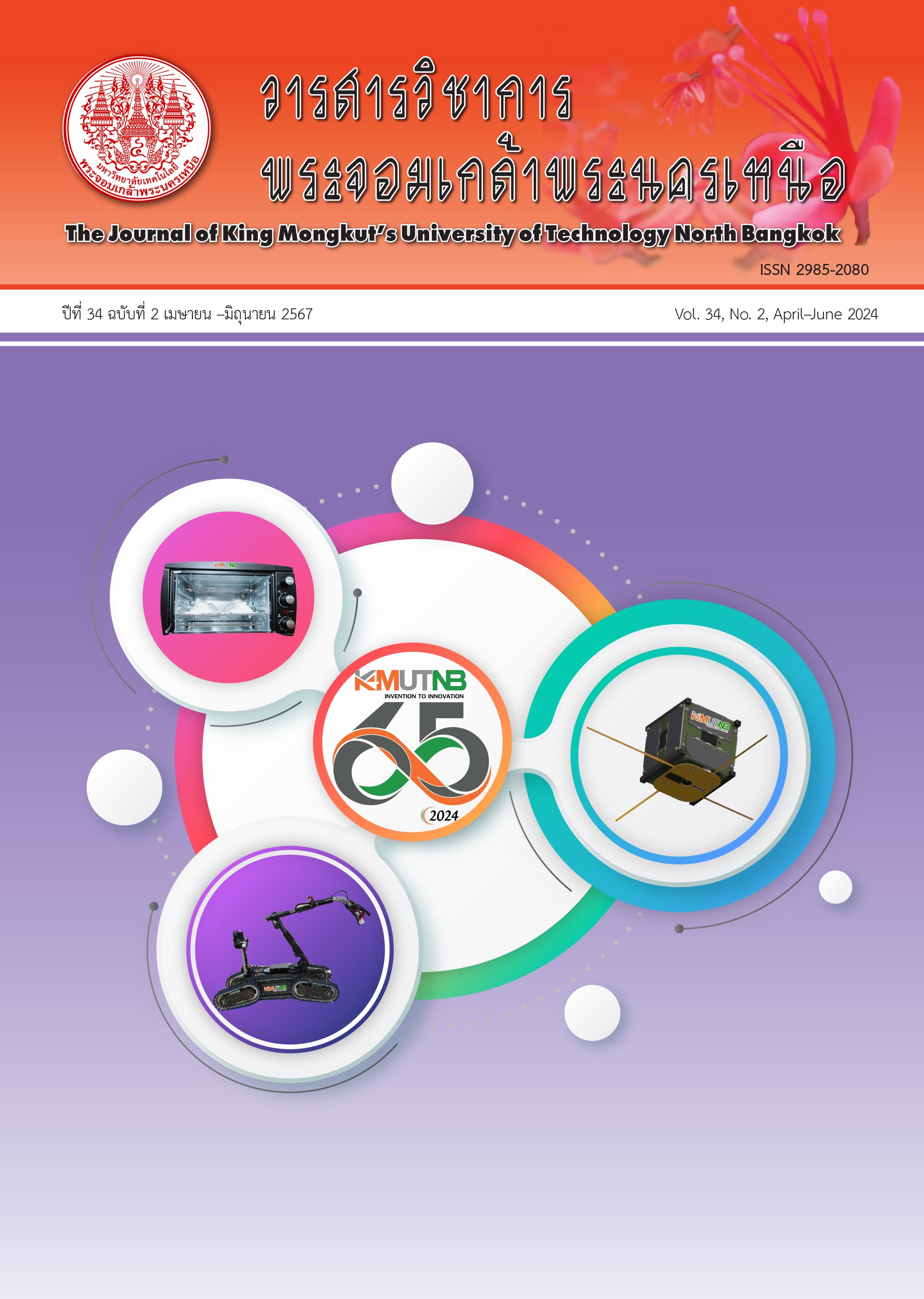Development of an Instructional Activity Package Based on STEM Education: A Case Study of Smart Farm
Main Article Content
Abstract
The objectives of this research are 1) to develop an instructional activity package based on STEM education: a case study for smart farm, and 2) to evaluate students' satisfaction towards the package. The package contains a guideline of learning activities based on STEM education, a teacher manual, a student manual, a smart farm practice set, virtual instructional media, pre- and post-tests, and a learning outcome evaluation form. The sample group was selected from the target group which consists of 12 students enrolling in the Microcontroller Application course of the Industrial Electrical and Electronic program, Department of Industrial Technology, Faculty of Agricultural and Industrial Technology, Nakhon Sawan Rajabhat University. Mean and standard deviation were used to analyze the data. The result showed that the developed package can be effectively applied for teaching and learning management. The students’ level of satisfaction towards the package was high (X̅ = 4.32 and S.D. = 0.51). In conclusion, the instructional activity package based on STEM education: a case study of smart farm can be effectively applied in a Microcontroller Application course and develop the learning progress. It can be used with project-based learning techniques to improve students to think and analyze problems step by step and enhance higher learning opportunities.
Article Details

This work is licensed under a Creative Commons Attribution-NonCommercial-NoDerivatives 4.0 International License.
The articles published are the opinion of the author only. The author is responsible for any legal consequences. That may arise from that article.
References
Digital Economy Promotion Agency. (2022, May). Agriculture choice, way of survival. [Online]. Available: https://www.depa.or.th/ th/article-view/agriculture-alternative-way-ofsurvival.
Agricultural Research Development Agency. (2022, May). Farmer a career that has been with Thai people for a long time. [Online]. Available: https://www.arda.or.th/knowledge _detail.php?id=33.
R. A. Mouha, “Internet of Things (IoT),” Journal of Data Analysis and Information Processing, vol. 9, pp. 77–101, 2021.
O. Vishali Priya and R. Sudha, “Impact of Internet of Things (IoT) in Smart Agriculture,” Recent Trends in Intensive Computing, vol. 39, pp. 40–47, 2021.
K. Kamolchart, “Learning management based on STEM education for student teacher,” Journal of Education Naresuan University, vol. 18, no. 4, pp. 334–348, 2016 (in Thai).
C. B. Farrow and E. Wetzel, “An active learning classroom in construction management education: Student perceptions of engagement and learning,” International Journal of Construction Education and Research, vol. 17, no. 4, pp. 299–317, 2021.
S. Arkira, R. Kanokwan, and T. Chaiyapon, “Development and efficiency validation of training course on smart farm based on STEM education: A case study of abalone mushroom,” in proceedings International Conference on Power, Energy and Innovation (ICPEI), Chonburi, Thailand, 2019.
A. Roberts and D. Cantu, “Applying STEM Instructional Strategies to Design and Technology Curriculum,” in proceedings of the Technology Education in the 21st Century. PATT 26 Conference, Stockholm, Sweden, 2012.
R. Nutjaree, W. Pollawat and C. Panida, “The Development of instructional packages to practice english reading comprehension skill by using task-based learning with local learning resources for the eleventh-grade students,” Veridian E-Journal, Silpakorn University, Humanities, Social Sciences, and Arts, vol. 12, no. 5, 2019 (in Thai).
S. Arkira and T. Chaiyapon, “Development and efficiency validation of experimental set for grow organic salad vegetable smart farm based on STEM education,” in proceedings International Conference on Power, Energy and Innovation (ICPEI), Chiang Mai, Thailand 2020.

